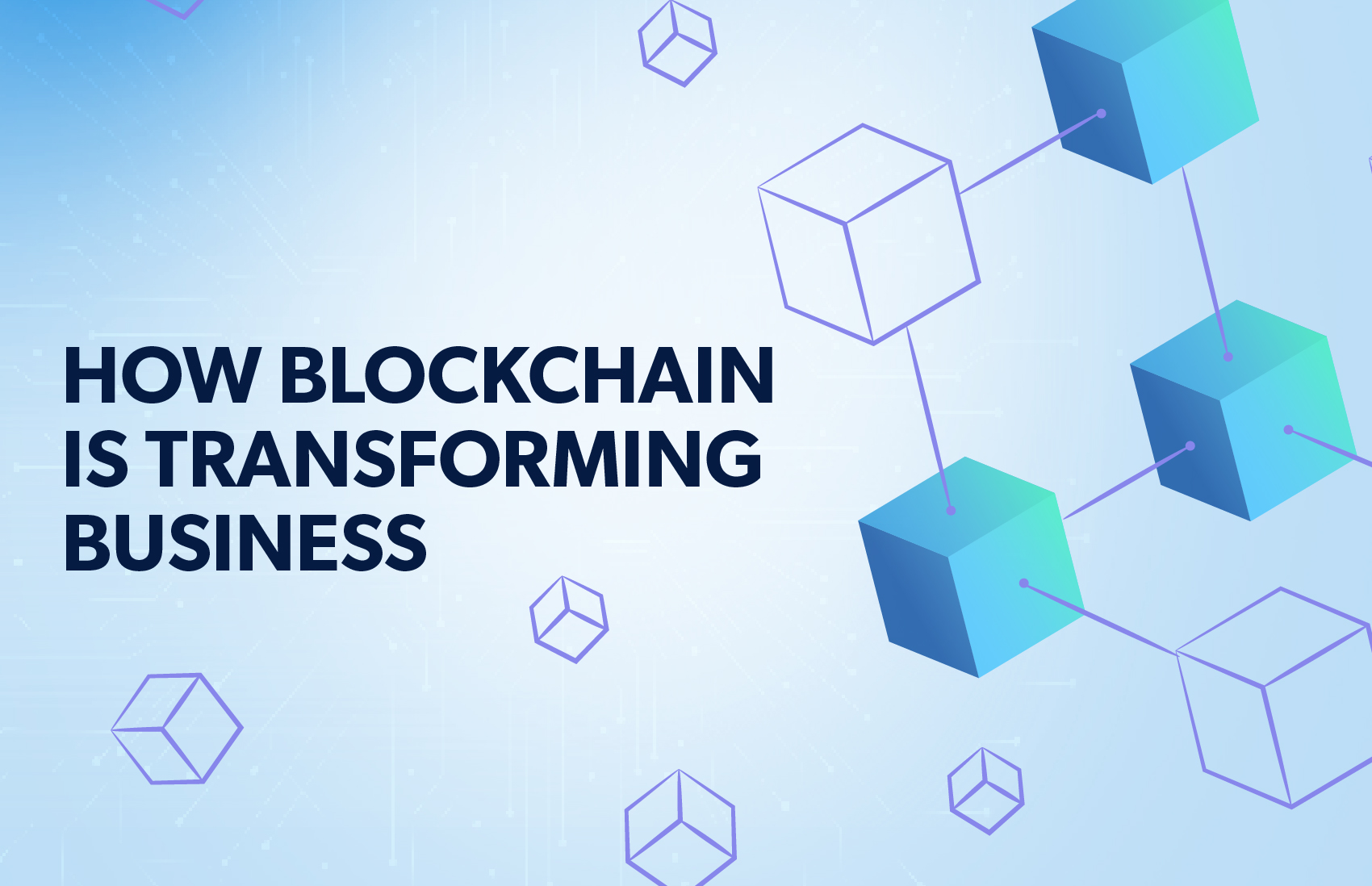Imperial College London and FluidAI Announce Groundbreaking AI Partnership! Read here 🤝

How Blockchain is Transforming Business
- Blockchain is revolutionizing conventional business methods by enhancing security, transparency, and efficiency
- It has changed how many organizations manage their operations and apps, and the future of blockchain is very promising
- This article discusses the impact of blockchain and how it’s transforming businesses

How Blockchain is Transforming Business
Summary
- Blockchain is revolutionizing conventional business methods by enhancing security, transparency, and efficiency
- It has changed how many organizations manage their operations and apps, and the future of blockchain is very promising
- This article discusses the impact of blockchain and how it’s transforming businesses
While we mostly associate blockchain with cryptocurrencies and investments, the technology has changed how many organizations manage their operations and apps. Blockchain has significantly altered how businesses move money and data by allowing safe and effective transactions.
With attributes like immutability and decentralization, blockchain is already being adopted by several industries. According to Statista, “by 2024, blockchain spending will reach over 19 billion U.S. dollars.” But how does this technology benefit various sectors of the economy? How does the use of blockchain affect how businesses operate? What does the future hold for it?
Let’s find out.
How Blockchain Is Transforming Business
If businesses are to thrive in an era of pervasive digital transformation, strategic decisions about the organization and integration of business processes into operational business models are paramount. Business sectors must, therefore, act quickly to grasp the innovative potential that digital technologies provide.
Although the fundamental components of database technology were initially described in 1991, it was in 2009 that the digital currency Bitcoin saw the first actual implementation of the blockchain. Since then, blockchain’s potential applications have grown quickly.
Let’s now examine how firms use blockchain to revamp their processes:
- Safety: A secure, unchangeable public record of each transaction can be created using distributed ledger technology in the blockchain. This record is utterly impervious to manipulation or modification. As a result, it is nearly impossible for scammers and fraudsters to alter the data or steal private information. Additionally, it does away with the requirement for third-party middlemen, which is sometimes costly and slows down corporate processes.
- Transparency: Blockchain enables organizations to communicate information safely and openly thanks to its distributed ledger architecture. This makes financial transactions more transparent and allows supply-chain tracking in real-time for both products and services. Additionally, it does away with the necessity for time-consuming manual procedures like paper-based contracts and invoicing. Companies are able to lower the price of data sharing while guaranteeing the reliability and integrity of data records.
- Efficiency: By doing away with manual procedures like paperwork and reconciliation processes, the automation features of blockchain allow organizations to simplify their operations. Transaction completion times are shortened by the speed and security of blockchain transactions compared to conventional ones. Additionally, companies can utilize blockchain to develop smart contracts – self-executing agreements between two or more parties that only take effect when specific requirements are satisfied. This makes it possible for enterprises to automate procedures without using middlemen.
Businesses are employing blockchain to save on the expenses of manual processes and data exchange while maintaining the quality of their records. Additionally, with smart contracts and automated transactions, organizations are able to optimize their operations, thanks to blockchain’s automation capabilities.
Types of Blockchain Platforms
There are numerous blockchain platforms available today, each with its own unique features and capabilities. Here are five popular blockchain platforms:
- Ethereum: Ethereum is a decentralized blockchain platform that enables developers to build and deploy smart contracts and decentralized applications (dApps). It uses the Ether cryptocurrency as its native currency and is known for its flexibility and programmability.
- Bitcoin: Bitcoin is the first and most well-known blockchain platform that uses a peer-to-peer network to enable secure and anonymous transactions. It uses the Bitcoin cryptocurrency as its native currency and is primarily used for financial transactions.
- Ripple: Ripple is a blockchain platform that enables fast and low-cost international payments. It uses the XRP cryptocurrency as its native currency and is primarily used by financial institutions.
- Hyperledger Fabric: Hyperledger Fabric is a blockchain platform developed by the Linux Foundation that is designed for enterprise use cases. It offers a modular architecture and a high degree of customization to enable businesses to build and deploy private blockchain networks.
- Corda: Corda is a blockchain platform designed for enterprise use cases that is focused on enabling secure and efficient inter-organizational transactions. It offers privacy, scalability, and interoperability features that make it suitable for use in industries such as finance, healthcare, and supply chain management.
Other notable blockchain platforms include EOS, Stellar, and TRON, among others.
Blockchain has a Promising Future
In identity management, blockchain has some of the most promising uses. It can assist in combating fraud and identity theft by developing a decentralized and secure method for storing and validating identifying information. Additionally, it may give people more control over their data by allowing them to decide who has access to it and how it will be used.
Blockchain promotes transparency, efficiency improvements, and cost savings. It gives answers to the problems that many businesses are having. Increasing productivity and profitability enhances international trade. In addition, several predictions have already been made about its potential, including:
- According to a prediction by IDC, by the end of 2024, annual global data spending on blockchain solutions will reach $19 billion.
- According to Gartner, by 2030, blockchain will provide an estimated USD 3.1 trillion in annual economic value. This demonstrates unequivocally that by 2030, 10%–20% of the world’s economic infrastructure will be governed by blockchain-based systems.
- According to Statista, blockchain revenues will surpass USD 39 billion by 2025.
- According to a report by MARKETSANDMARKETS, blockchain is expected to emerge as the ‘Blockchain of Things.’ It is anticipated that the widespread use of blockchain-based Internet of Things (IoT) will increase demand and create a market of USD 2,409 million by 2026.
Final Thoughts
Blockchain has the potential to transform companies looking to take advantage of its potential advantages when used appropriately.
Businesses that use blockchain have unmatched access to international markets and increased operational efficiency since it can securely store data, enable payments, allow the exchange of digital assets, monitor commodities throughout supply chains, and manage healthcare records.













